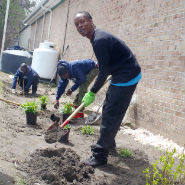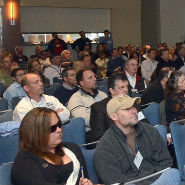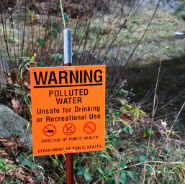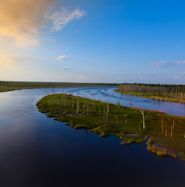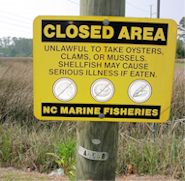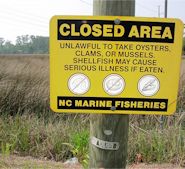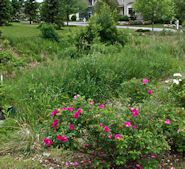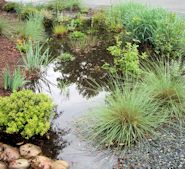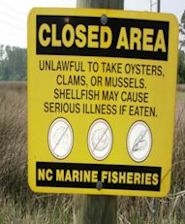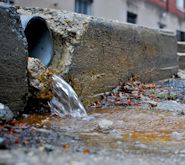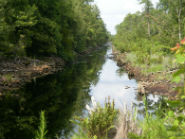At-risk young people in Elizabeth City start a new path in life, earning an education and getting on-the-job training about techniques to control polluted runoff.
Stormwater
LID Draws a Packed House in Raleigh
A conference on low-impact development drew hundreds of people to hear about promising techniques to control runoff that is poisoning the state’s waterways.
The Congo of Polluted Water
If connected end-to-end, North Carolina’s impaired river and stream segments would form the ninth-longest river in the world. Its acreage of polluted lakes, marshes and sounds would cover Yellowstone National Park.
Spreading the Word About Runoff Control
Burrows Smith, a Wilmington developer, will be one of the attendees at a conference next month who will be preaching about new methods to control poisoned runoff to protect coastal waters.
Joining Forces to Help Troubled Creeks
Two non-profits, a couple of universities, a local business and a city have been working together to bring two Wilmington creeks on the road to recovery.
A New Approach to Polluted Waters
The N.C. Coastal Federation will soon publish a new guidebook that will offer cheaper, simpler methods for restoring our polluted coastal rivers and streams.
Teaming Up for Clean Water
Volunteers helped the N.C. Coastal Federation and Habitat for Humanity build rain gardens and install cisterns at a Habitat house in Brunswick County to help control stormwater.
Building Simple While Building Green
There will come a day when low-impact development is simply development. When that day comes it may look something like the house that Toni and John Cornelius built in Wilmington.
LID Comes to Onslow County
The Swansboro town board approved a subdivision that will use low-impact development techniques to control stormwater. It’s the first such project in Onslow County.
Pelican Award: Winding River Plantation
The Winding River Plantation Property Owners Association in Brunswick County won a Pelican Award from the N.C. Coastal Federation for developing model community landscaping guidelines that promote environmentally friendly yards.
Work Begins on Hyde Runoff Project
Work has begun on the first phase of a massive restoration project in Hyde County that will redirect millions of gallons of polluted farm field runoff away from Pamlico Sound.
Stormwater Primer: Are Rules Working?
Polluted runoff is now the largest source of water impairment along the coast, but many think that the state’s evolving regulations are working to control it.
Stormwater: A Primer
In the first of two parts on polluted runoff, we explore where it comes from, its effects on coastal water quality and the rules in place to try and control it.
Smart Yards Can Be Smart Investments
A free booklet, “Smart Yards,” offers inexpensive ways to cut polluted runoff from your property to protect water quality and save money.
Super-Sized Restoration Projects Begin in Hyde County
Ground-breaking is imminent on two of the N.C. Coastal Federation’s large-scale hydrologic and habitat restoration projects in Hyde County. A previously unheard-of partnership of farmers, a conservation nonprofit and others have combined forces on projects that provide benefits for all concerned.
McDonald’s Project Exempted from Runoff Rules
The state has exempted a planned McDonald’s restaurant in Swansboro from rules to control polluted runoff. But is the permit legal?

